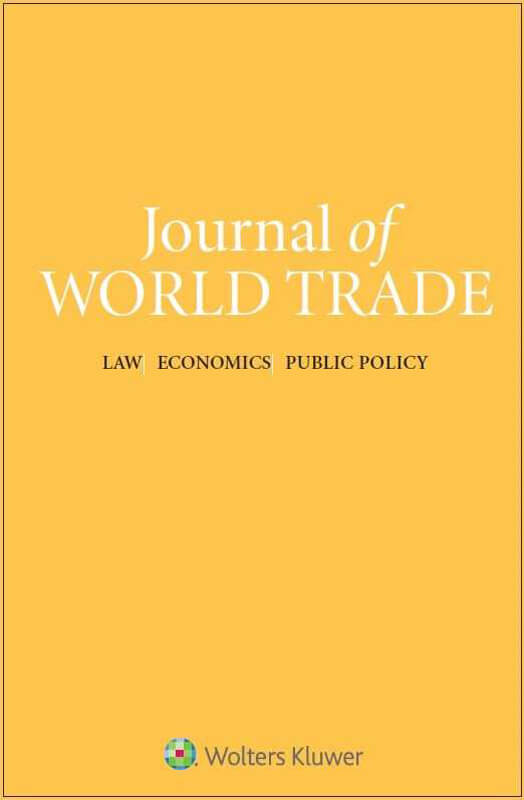Home > All journals > Journal of World Trade > 50(3) >

$25.00 - Rental (PDF) *
$49.00 - Article (PDF) *
Aksel Erbahar, Laura Puccio
Journal of World Trade
Volume 50, Issue 3 (2016) pp. 391 – 416
https://doi.org/10.54648/trad2016018
Abstract
This paper deals with one of the controversial trade issues on the agenda for negotiations in the WTO since the Uruguay Round. Anti-circumvention rules (AC) allow the application of trade remedies to products that would fall outside the scope of the trade remedy regulation. The rationale is that some practices allow circumvention of the extra duties and so lessen the effective application of remedies. In this article, we argue that, in order to avoid protectionist abuses, these AC rules should only extend trade measures to those goods that both effectively circumvent and undermine those remedies, meaning the tests included in AC investigations must lead to the proportional application of AC measures. More specifically, we use a law and economics approach to analyse the proportionality of AC rules in the context of the largest AC user, the EU, who, according to our estimations, have extended its existing anti-dumping coverage by an additional annual import value of USD 2 billion via new AC measures imposed in 1995–2013.
Extract
